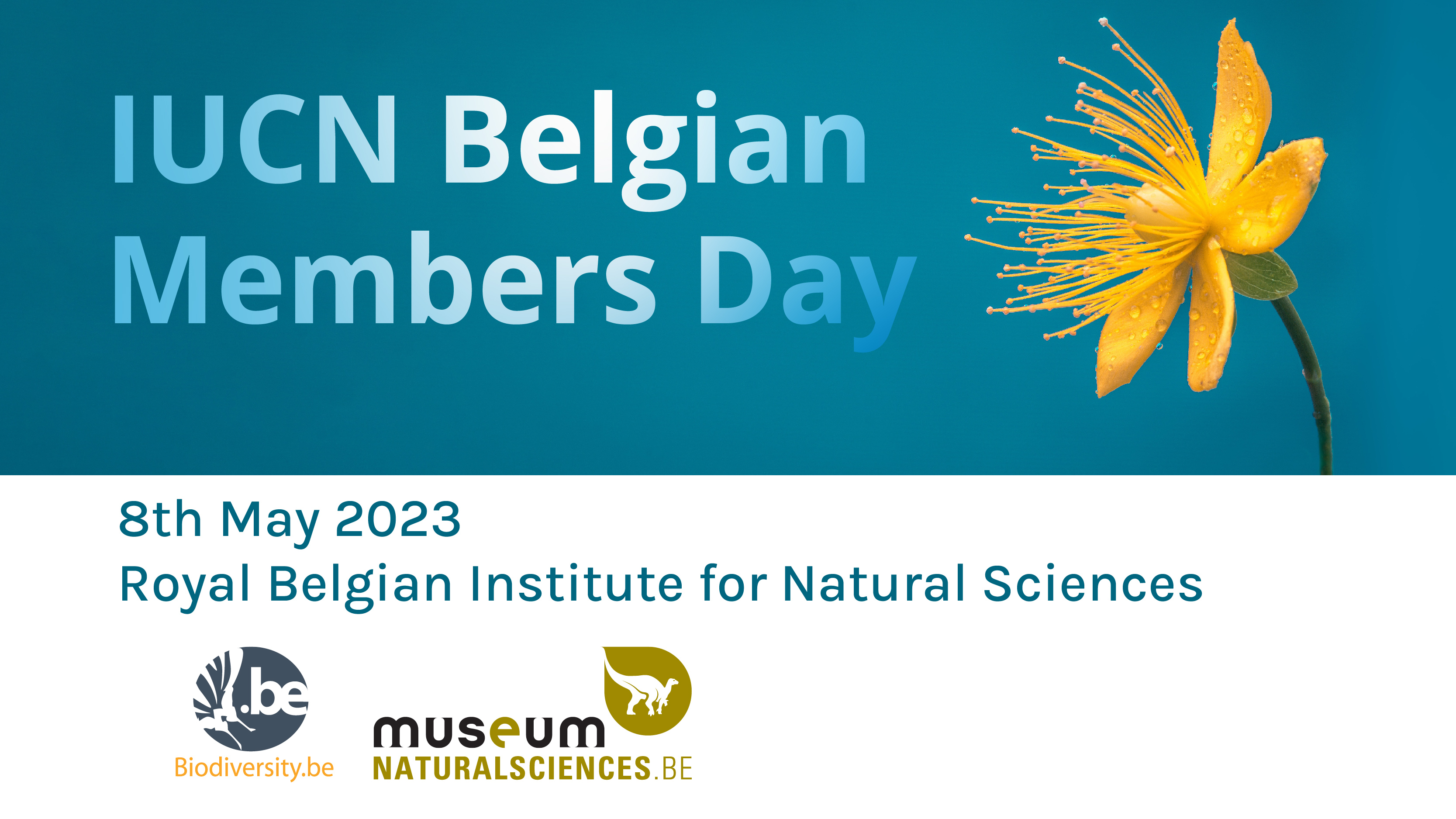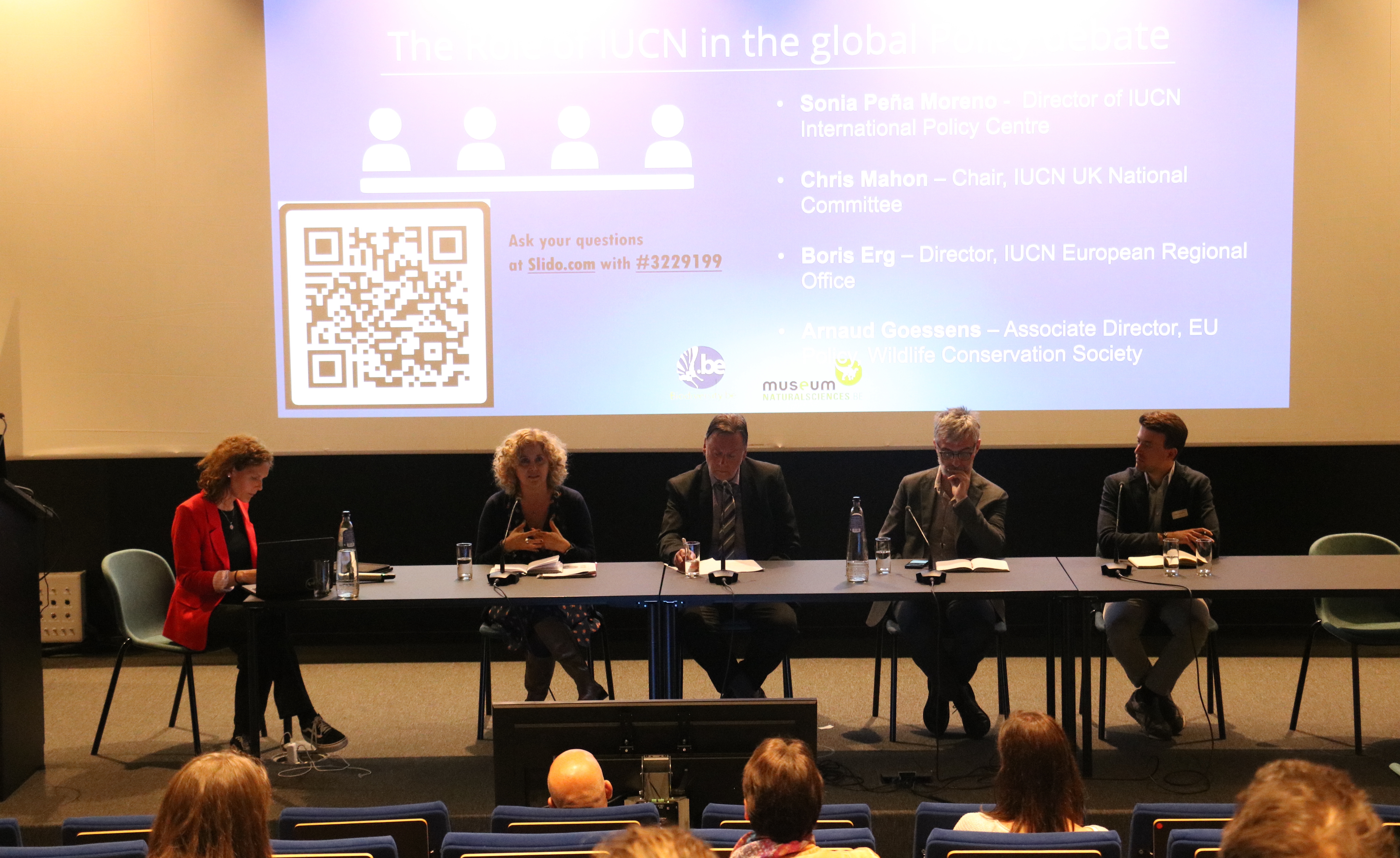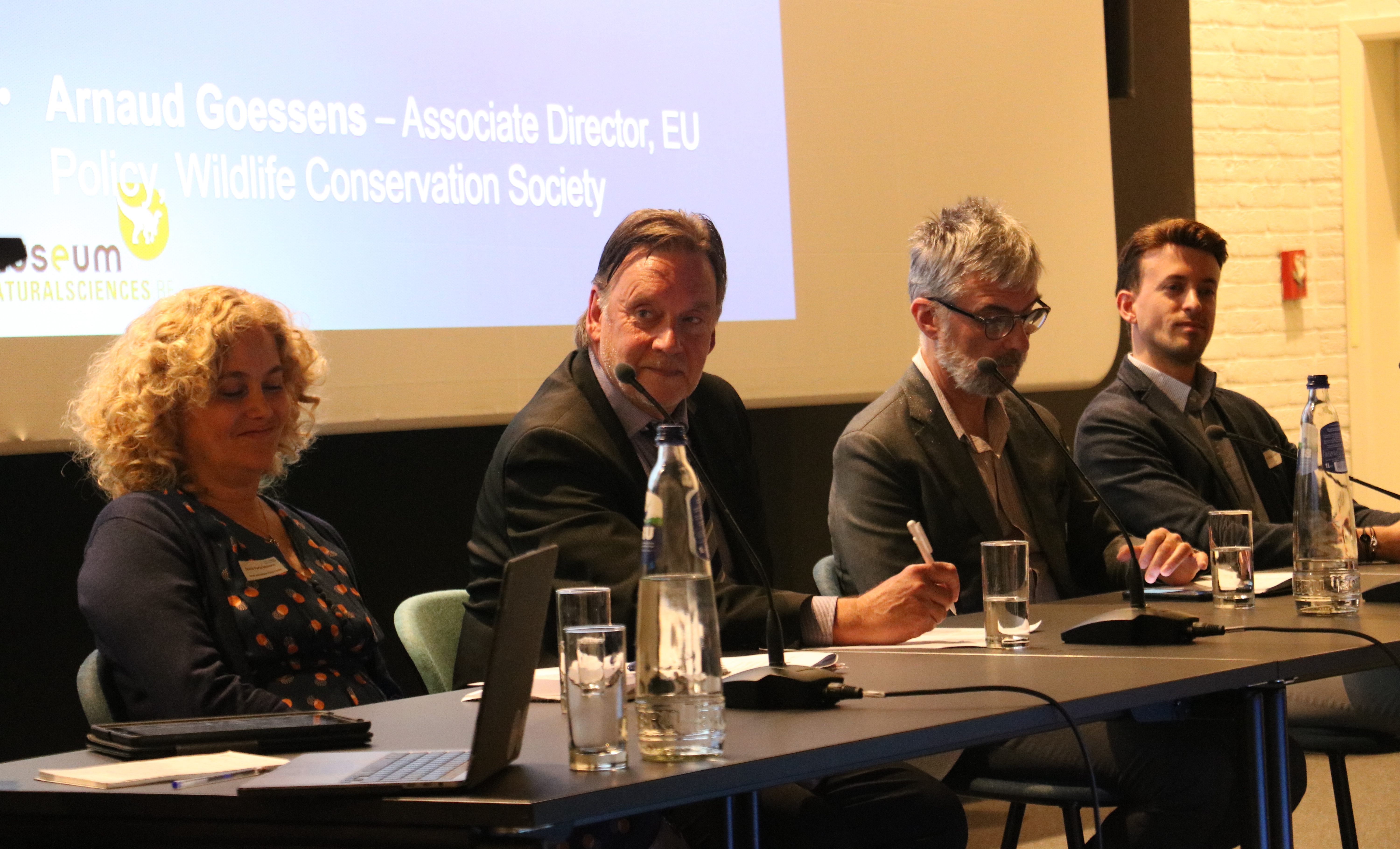
WCS EU participated in the first Belgian IUCN members day on 8th May 2023 at the Royal Belgian Institute of Natural Sciences to present WCS's global conservation and policy work, and to discuss how IUCN can use the power of science to feed into global policy and the major challenges for implementing policy for better conservation.
On 8th May 2023, the IUCN Belgian National Focal Point organised the first Belgian IUCN members day with Belgian IUCN members and all interested stakeholders at the Royal Belgian Institute of Natural Sciences in Brussels. During this all-day information session, participants discussed the work of IUCN, including the European work programme, IUCN tools, Commissions, and member engagement through the Regional Conservation Forum and World Conservation Congress. The event was the first of its kind with the overall objective to increase awareness, reinforce engagement by Belgian experts and members, and demonstrate IUCN's value proposition. More information is available at www.biodiversity.be/5861
Featured speakers included, among others:
- Hilde Eggermont, Strategic Coordinator, Belgian Biodiversity Platform
- Arnaud Goessens, Associate Director for EU Policy, Wildlife Conservation Society - EU office
- Thomas Brooks, Chief Scientist, IUCN
- Sonia Peña Moreno, Director, IUCN International Policy Centre
- Boris Erg , Director, IUCN European Regional Office
- Chris Mahon, Chair, IUCN UK National Committee
- Divija Jata, Belgian IUCN Focal Point, Operational Coordinator , Belgian Biodiversity Platform
 Panel on 'The Role of IUCN in the global policy debate’ at the Belgian IUCN members day
Panel on 'The Role of IUCN in the global policy debate’ at the Belgian IUCN members day
In a panel on 'The Role of IUCN in the global policy debate’, Arnaud Goessens, Associate Director for EU Policy, WCS EU, highlighted that the Wildlife Conservation Society (WCS) is one of the founding members of IUCN and remains very active in the work and in the functioning of IUCN, for example through the IUCN Council, IUCN Commissions, and the IUCN World Conservation Congress. He also stressed the important role of the IUCN Commissions as the scientific and technical core of IUCN, convening global and leading experts on specific topics and helping facilitate research, assessments and the development of knowledge products. He therefore emphasised the importance to further increase synergies and alignment between the IUCN Secretariat and the IUCN Commissions. For example, when the IUCN Secretariat advocates certain policies in intergovernmental, global fora, their position must be based on the best available science, and it must also seek and integrate input from its Members, Commissions, and the IUCN Council.
One major challenge in implementing policy for better conservation is the fragmentation of conservation efforts across sectors, which can lead to conflicting policies and ineffective implementation. The climate crisis, the biodiversity crisis, and the health crisis are all interconnected, and we need better integrated and collaborative approaches to tackle these global crises. Arnaud noted that insufficient financial resources are also a major obstacle to effective conservation policy implementation, and that governments should significantly increase their biodiversity financing. It is also necessary to further engage multilateral development banks and the private sector, which could and should be key players in the area of biodiversity financing. Finally, he emphisased the critical need to further engage with and involve local communities and Indigenous Peoples to ensure that their knowledge, their perspectives, and their rights feed into policy development and implementation.
 (Left to right): Sonia Peña Moreno, Chris Mahon, Boris Erg , Arnaud Goessens
(Left to right): Sonia Peña Moreno, Chris Mahon, Boris Erg , Arnaud Goessens
READ MORE
IUCN World Conservation Congress 2021